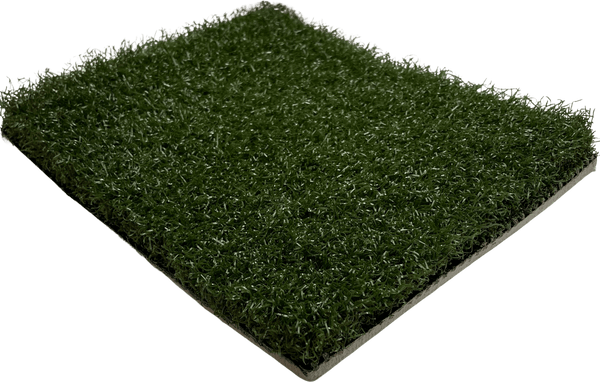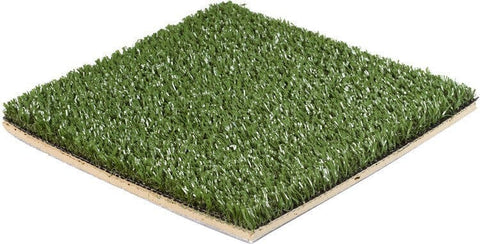Long-Lasting Arizona Artificial Turf for Residential and Commercial Applications
Long-Lasting Arizona Artificial Turf for Residential and Commercial Applications
Blog Article
Delve Into the Environmental Benefits of Opting for Artificial Lawn Solutions
The fostering of man-made turf options offers a compelling opportunity to resolve pressing environmental difficulties. By significantly lowering water use and reducing the application of hazardous chemicals, these options not just advertise lasting landscape design however likewise protect regional ecological communities.
Water Preservation Conveniences
One of the most considerable benefits of synthetic lawn is its capacity to preserve water. In comparison, artificial lawn does not need watering, dramatically reducing the total need for water resources.
By removing the need for regular watering, synthetic grass adds to sustainable landscape techniques and assists mitigate the ecological influence of excessive water usage. Moreover, the conservation of water includes the decrease of overflow, which can lead to soil erosion and river pollution.
In addition, the installment of synthetic grass allows towns and home owners to allocate water resources a lot more efficiently, focusing on essential usages such as alcohol consumption water and agriculture. The change in the direction of synthetic grass not only advertises liable water use but additionally lines up with broader environmental objectives focused on protecting natural deposits.
As communities significantly focus on sustainability, the water preservation advantages of synthetic grass provide an engaging case for its fostering in residential and industrial landscaping jobs.
Reduced Chemical Use
The change to man-made grass substantially lowers the dependence on chemical therapies generally utilized in natural grass maintenance. Standard grass monitoring normally entails the application of plant foods, herbicides, and chemicals to advertise development and control bugs. These chemicals can position risks to human wellness, neighborhood wildlife, and the setting, adding to soil and water contamination.
In contrast, man-made grass removes the requirement for these harmful compounds. By lessening the release of artificial substances into the ecological community, fabricated turf advertises healthier soil and water systems.
Furthermore, the lack of chemical overflow linked with synthetic grass installations assists safeguard local waterways from contamination, supporting aquatic life and preserving biodiversity. Artificial turf companies phoenix. As communities increasingly focus on lasting methods, choosing synthetic grass offers a sensible solution that aligns with environmental conservation goals. Via this change, homeowner can enjoy lavish environment-friendly rooms without endangering environmental health and wellness, leading the method for a more sustainable future
Lower Carbon Impact

Additionally, the installment of synthetic grass can cause significant water preservation. Natural lawns require significant amounts of water for watering, which not just adds to the carbon impact connected with water removal and therapy however also pressures local water sources. In comparison, fabricated grass requires very little upkeep, requiring no watering, therefore considerably lowering water usage and its linked power expenses.
In addition, the durability of synthetic turf adds to its reduced carbon impact. With a lifespan of up to 15 years or even more, the requirement for frequent replacements is diminished, resulting in much less waste and lower energy intake in production and disposing of typical lawn alternatives. Generally, synthetic grass provides a sustainable choice for ecologically mindful landscaping.
Habitat Conservation
Environment conservation is a vital factor to consider in the discussion over landscape design options, specifically when comparing synthetic turf to view website natural yard. All-natural lawn lawns typically require considerable upkeep, including the use of chemicals, herbicides, and plant foods, which can negatively influence regional ecological communities. These chemicals can leach into the soil and waterways, hurting indigenous flora and animals and interrupting regional habitats.
Man-made turf gets rid of the need for harmful chemicals, consequently shielding neighboring wildlife and maintaining the integrity of bordering ecological communities. The setup of man-made lawn can lead to the conversion of previous yard locations right into more biodiverse landscapes, such as pollinator gardens or native plant areas, which can support regional wildlife.
Inevitably, the change to synthetic grass not just conserves water and minimizes maintenance efforts however likewise fosters a more harmonious connection in between human activities and the all-natural environment, advertising environment conservation while doing so.
Long-Term Sustainability
Long-lasting sustainability is a critical consider examining the advantages of man-made lawn over conventional grass lawns. One of one of the most considerable benefits of synthetic grass is its durability; it can last approximately 15-20 years with marginal maintenance, whereas all-natural lawn needs frequent reseeding and substitute. This durability reduces the demand for constant resources, such as water, fertilizers, and chemicals, which are vital for preserving a go to website healthy yard lawn.
In addition, man-made turf contributes to a decrease in carbon emissions connected with lawn treatment equipment. Typical yards often need gas-powered mowers, trimmers, and blowers, every one of which add to air contamination. Phoenix turf companies. In contrast, synthetic grass gets rid of the demand for such devices, advertising a cleaner environment
In addition, the production of synthetic grass progressively utilizes recycled materials, enhancing its sustainability profile. As manufacturers embrace eco-friendly techniques, the environmental footprint of fabricated turf remains to diminish.

Verdict
The fostering of synthetic turf remedies provides significant environmental advantages, including considerable water conservation, lowered reliance on unsafe chemicals, and a reduced carbon footprint. Fabricated grass help in protecting all-natural habitats by lessening land disturbance and promoting lasting sustainability with the usage of resilient products. Jointly, these elements underscore the capacity of fabricated turf to contribute favorably to environmental health and wellness and offer a feasible choice to conventional landscape design techniques in a significantly resource-conscious globe.
In contrast, synthetic lawn does not require watering, substantially reducing the overall demand for water resources. you can look here By lessening the release of synthetic substances right into the ecosystem, synthetic grass advertises much healthier dirt and water systems.
Furthermore, the installation of synthetic grass can result in significant water conservation. In contrast, synthetic grass needs very little maintenance, needing no watering, consequently considerably minimizing water usage and its connected energy prices.

Report this page